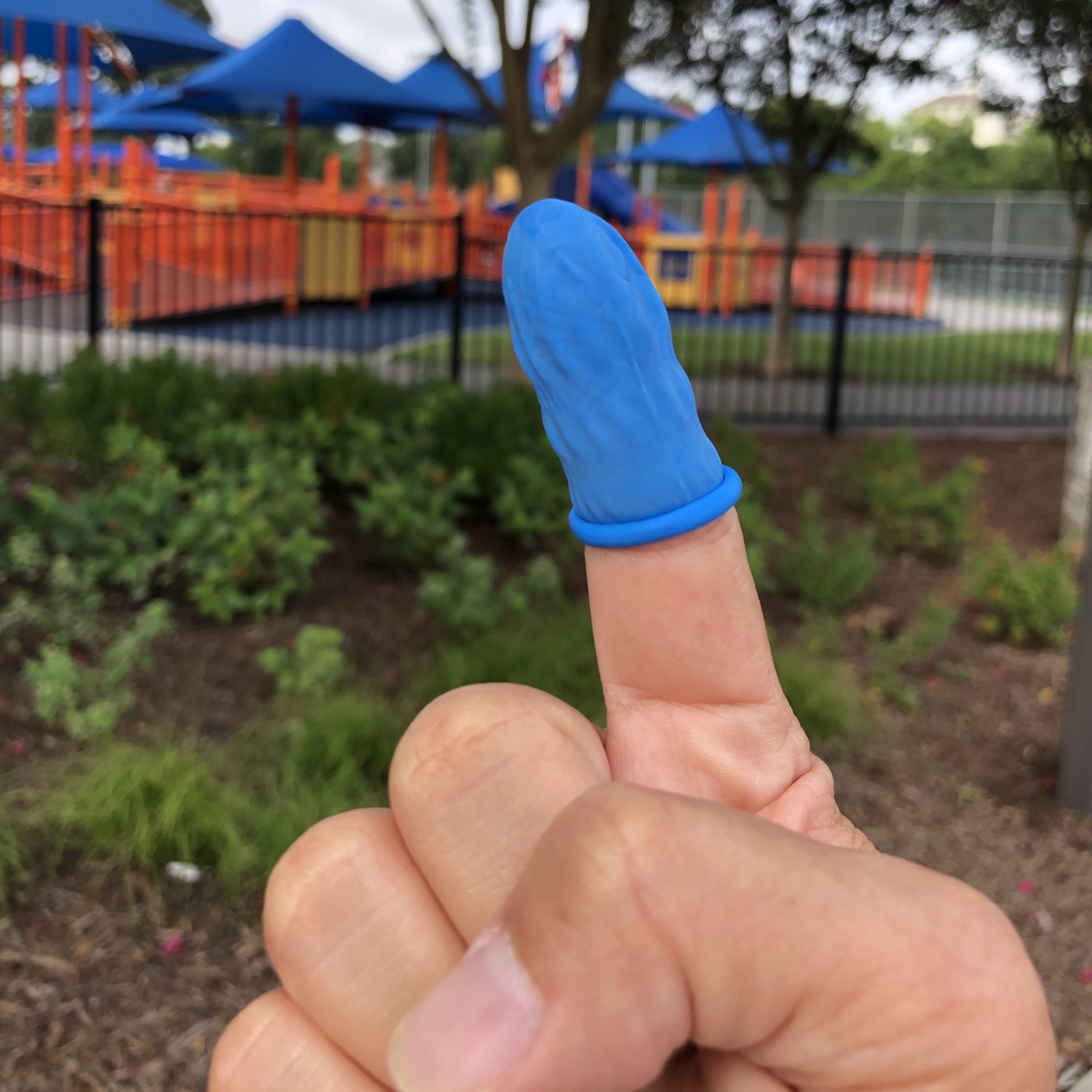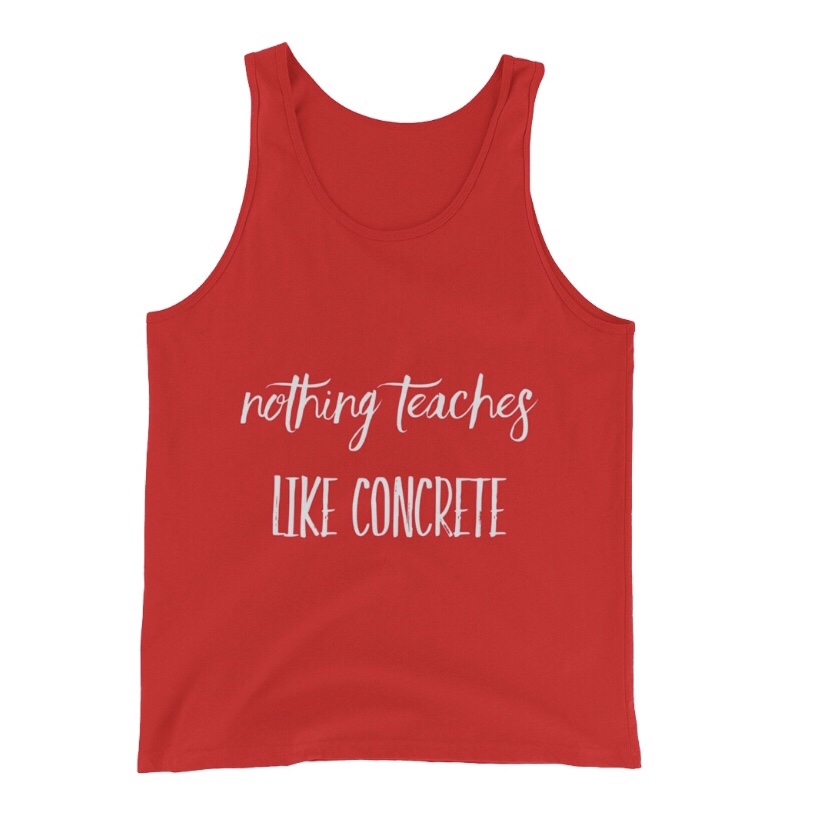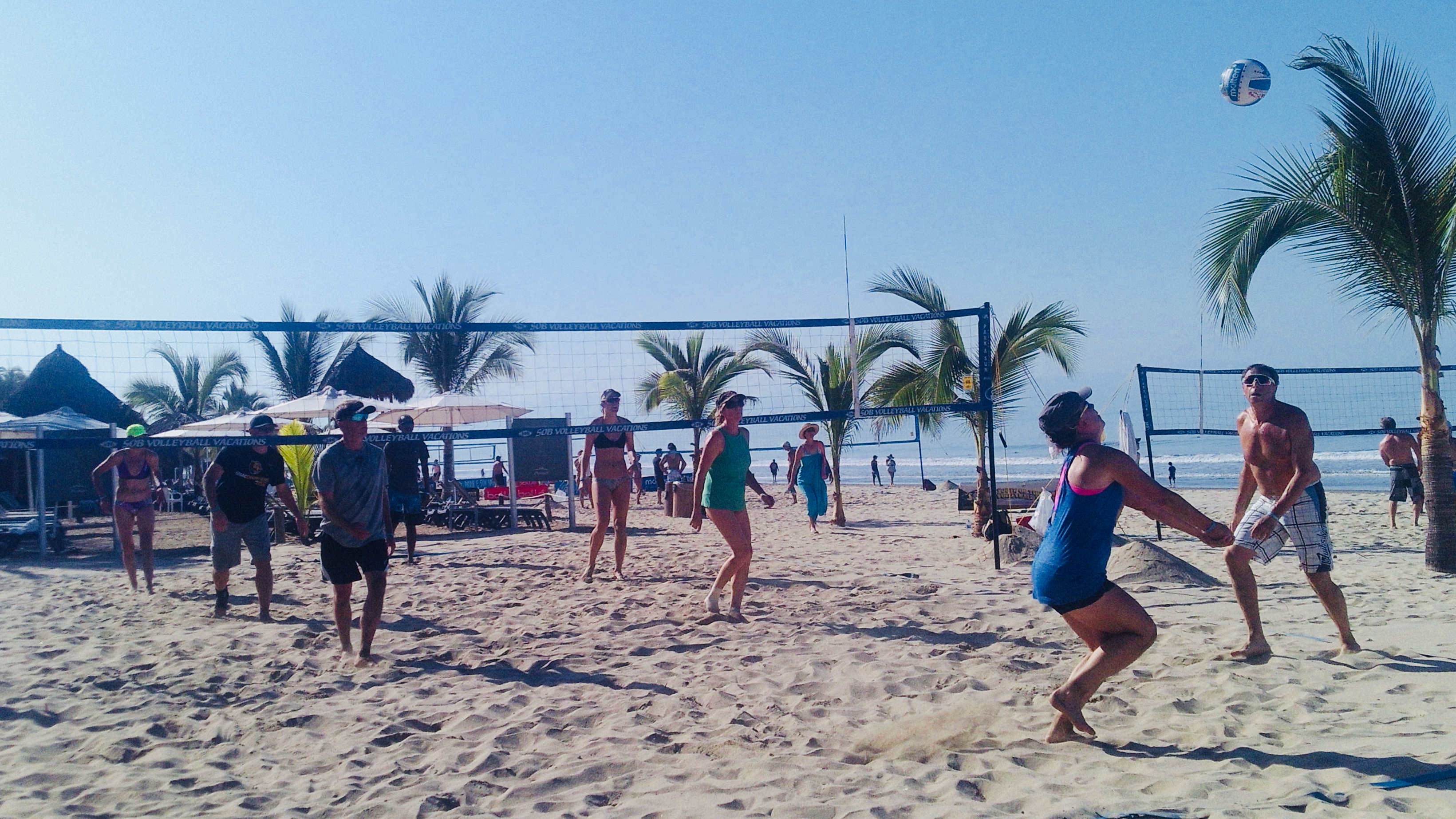The abundance of public beach volleyball courts in Southern California is a pleasant anomaly. Locals usually do not have to compete for the availability of a court, but in most other places, beach volleyball courts are relatively rare, and communities have to share them. Very often, a park may only have one court, and cliques and alliances are often formed to defend priority in access.
In civil interactions, though, the challenge court system is the most common traditional way for beach volleyball teams to share in the use of a court. When a pair of teams are playing against each other, waiting teams form a queue to challenge the winning team on the court. A winning team stays on the court, and a particular strong team can continuously play in theory. It’s also a source of great rancor when the list of teams waiting expands beyond around four waiting teams; the delays can be intolerably long for even the first attempt at using the court. For example, if six teams were sharing a court, the last team in line will have to wait for five entire games to be completed. Assuming an average 20 minutes per game, that is almost two hours.
In practice, however, is that the wait is usually much longer. In traditional challenge court systems, the court itself is unused for significant periods of time, sometimes because the challenging team hasn’t warmed up in preparation – but most often because of delays caused by the winning team. After a set, the winning team requires a period of time to hydrate, catch their breath, use the restroom…in the meantime, the court is unavailable to any of the sitting teams. These delays add up, specially if the winning team has continuously won several games in a row.
A solution
I propose a skip-challenge system. Let’s assume there are six teams, A-F sharing the court. In the first set, team A plays team B. Assuming team A wins, both teams immediately step off the court at the point of victory, to allow an already warmed up team C and team D to begin playing. Teams A and B can share pleasantries at this time, and hydrate as needed, and prepare for the match between teams A and E (B goes to the end of the line). Assuming team C wins, both teams get off the court right away for teams A and E, and the next game is between teams C and F. The challenge then iterates from that point on.
- In the above example, team F gets on the court a full game earlier than in the standard challenge court system. Plus time saved from not having to wait for the recovery of the winning team makes it even faster.
- Every team sits at least one game after playing. Winning teams earn the right to limit this to one game, losing teams go to the end of the line.
- There’s no delay in getting teams to using the court, this maximizes the use of the facility and daylight.
- The desire to get on the court quickly incentivizes adoption of shorter, lower point games, since it shortens sitting times for everyone, although this is entirely optional.
For large groups of teams, the skip challenge system may be a more equitable way of distributing a scarce resource, and keep volleyball communities healthy.






